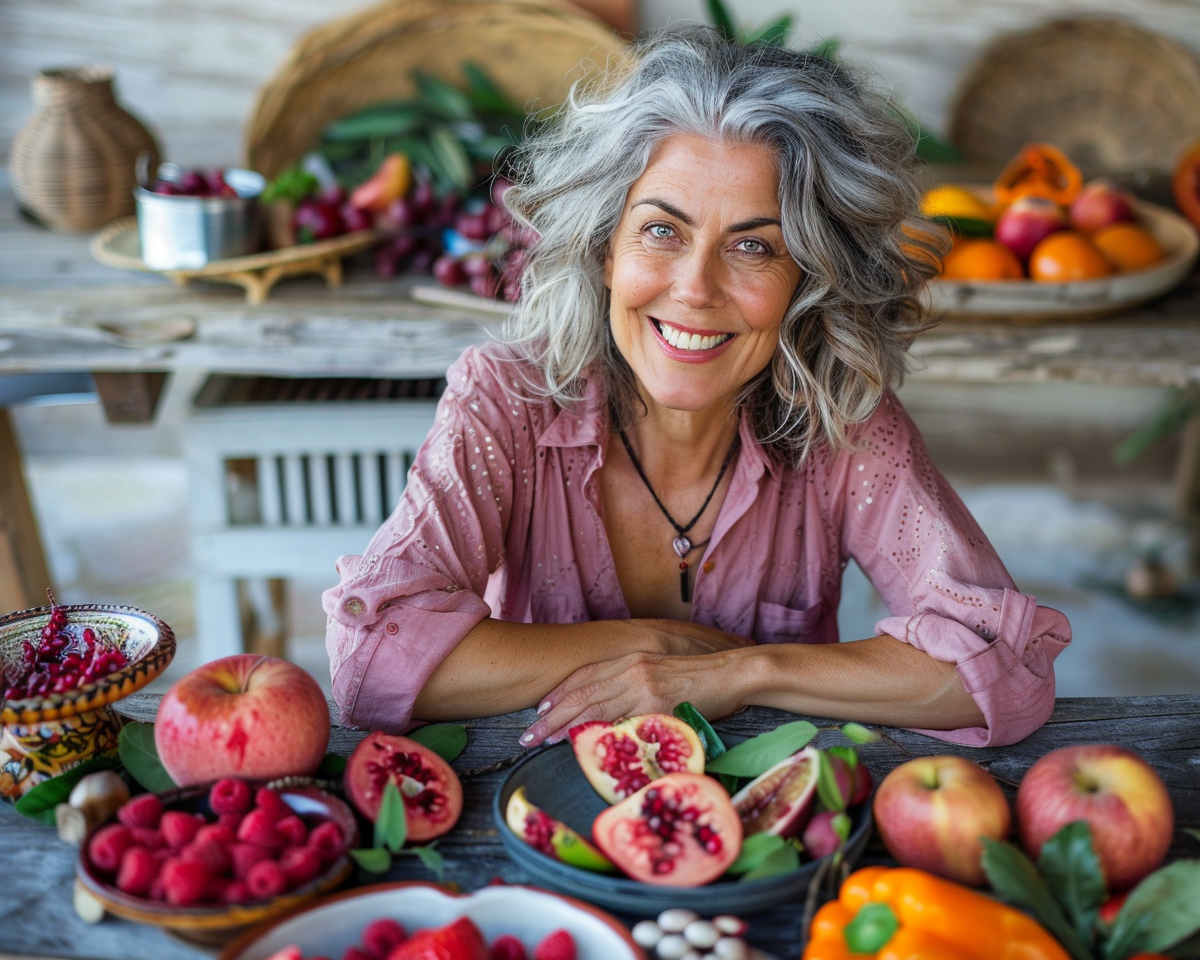Introduction to Skin Health and Diet
The Importance of Skin Health
The skin is the body’s largest organ and serves as a protective barrier against environmental aggressors. It regulates temperature, synthesizes vitamin D, and provides sensory information. Healthy skin is not only vital for overall well-being but also plays a crucial role in an individual’s self-esteem and psychological health. The condition of our skin can reflect internal health issues, making skin health a window to our systemic health.
Overview of How Diet Affects Skin
What we eat can have a profound impact on our skin’s health and appearance. Nutrients from our diet are essential for the cellular repair, collagen synthesis, and antioxidant defense systems that keep our skin robust and resilient. Diets rich in vitamins, minerals, and antioxidants can help protect the skin from the oxidative stress caused by UV radiation and environmental pollutants. Conversely, diets high in sugar and refined carbohydrates can accelerate the aging process and exacerbate skin conditions like acne and eczema.
The Shift Towards Natural Skin Care
There is a growing trend towards natural skin care, emphasizing the use of dietary approaches and topical applications derived from food sources to enhance skin health. This shift is driven by a better understanding of the skin-gut axis, where gut health is linked to skin conditions, and the desire to reduce exposure to synthetic chemicals found in traditional skin care products. Consumers are increasingly seeking out whole foods, superfoods, and probiotics that offer skin-deep nourishment, reflecting a holistic approach to health and beauty.
By the way, something for you, a little gift!!!
I am just in the middle of publishing my book. It’s about How women can balance their hormones. One part is about food and diet, of course.
Follow this link and enter your email.
I will send you this part of the book for free once the book is published. It has many concrete, practical tips and recipes and will help you feel better during menopause or times of Big hormonal fluctuations.
Annette, Damiva Lead for Health & Wellness

Understanding the Skin’s Nutritional Needs
Key Nutrients for Skin Health
The skin, being the largest organ of the body, requires a myriad of nutrients to maintain its health, elasticity, and glow. Vitamins A, C, E, and D, along with biotin and niacin, are essential for skin repair, protection against oxidative damage, and maintaining skin barrier function. Minerals such as zinc and selenium play crucial roles in skin integrity and wound healing. Fatty acids, particularly omega-3s, are vital for reducing inflammation and maintaining the skin’s lipid barrier. Additionally, protein, especially collagen and elastin, are the building blocks for skin’s structural components, providing firmness and elasticity.
How Nutrients are Absorbed and Utilized by the Skin
Nutrients reach the skin through the bloodstream after being absorbed in the gastrointestinal tract. The skin utilizes these nutrients in various ways; for instance, vitamin C is crucial for collagen synthesis, while vitamin E works synergistically with vitamin C to provide photoprotection. Zinc acts as a co-factor for numerous enzymes involved in skin repair and maintenance. The skin’s ability to utilize these nutrients efficiently can be influenced by factors such as age, overall health, and environmental stressors.
The Role of Hydration in Skin Health
Hydration is paramount for skin health. Water is essential for maintaining skin moisture and delivering nutrients to the skin cells. It helps to flush out toxins and can improve skin elasticity. Adequate hydration can prevent dryness, flakiness, and the appearance of fine lines. It is recommended to drink at least 8 glasses of water per day, and more if one is exposed to hot climates or engaging in physical activity. Additionally, hydrating foods like cucumbers, oranges, and watermelon can contribute to the overall water intake, further benefiting the skin.
Do you know the three main ways that your body gets in touch with harmful chemicals with everyday products? Knowledge is Power!
The Ultimate Detox Guide will tell you how to lower your exposure to harmful chemicals!

The Impact of Diet on Skin Aging
Foods That Accelerate Skin Aging
While the quest for the fountain of youth is endless, it’s important to recognize that certain dietary choices can hasten the aging process of the skin. Foods high in sugar and refined carbohydrates can lead to the production of advanced glycation end products (AGEs), which can damage collagen and elastin, the fibers that keep skin firm and youthful. Additionally, excessive alcohol consumption can dehydrate the skin, leading to wrinkles and dullness. Processed meats, trans fats, and fried foods are also culprits, as they can trigger inflammation and oxidative stress, further accelerating the skin’s aging process.
Anti-Aging Foods and Their Benefits
Conversely, a diet rich in certain nutrients can help slow down the skin’s aging process. Foods high in antioxidants, such as berries, nuts, and green leafy vegetables, can protect the skin from damage caused by free radicals. Omega-3 fatty acids, found in fatty fish like salmon, can help maintain the skin’s lipid barrier, essential for retaining moisture and resilience. Foods rich in vitamin C, such as citrus fruits and bell peppers, are crucial for collagen production, while vitamin E from nuts and seeds provides additional antioxidant protection. Including these foods in your diet can help keep your skin looking younger for longer.
Antioxidants and Their Role in Skin Care
Antioxidants are the skin’s defense against the aging effects of environmental stressors like UV radiation and pollution. They work by neutralizing free radicals, unstable molecules that can damage cells and lead to premature aging. Studies have shown that antioxidants such as vitamins C and E, polyphenols, and flavonoids can improve skin appearance and reduce the signs of aging. Incorporating a variety of antioxidant-rich foods into your diet, as well as using skincare products formulated with these nutrients, can provide a two-pronged approach to nourishing and protecting the skin.
It’s clear that diet plays a significant role in skin health and aging. By making mindful choices about what we consume, we can influence the appearance and longevity of our skin. While no diet can completely stop the aging process, a balanced intake of nutrient-dense foods can help minimize the visible signs of aging and promote a radiant, youthful complexion.

Feeling You Have a Right to Safe Beauty & Fem Care?
If so, it may be time for a change. It starts with knowledge. We have a few suggestions in our new guides.
Common Dietary Culprits in Skin Problems
Inflammatory Foods and Skin Conditions
The relationship between diet and skin health is complex, but certain dietary patterns are known to exacerbate inflammatory skin conditions. Foods high in refined sugars, trans fats, and dairy have been linked to increased inflammation in the body, which can manifest as acne, eczema, and psoriasis flare-ups. For instance, high glycemic index foods can cause a spike in insulin levels, leading to increased sebum production and clogged pores. Similarly, dairy products, particularly skim milk, have been associated with acne due to the presence of hormones and growth factors that can stimulate oil glands.
The Connection Between Gut Health and Skin
The gut-skin axis is a term used to describe the relationship between gastrointestinal health and skin appearance. A balanced gut microbiome is crucial for maintaining a healthy skin barrier and reducing inflammation. Probiotics and prebiotics can support gut health and, in turn, improve skin conditions such as acne and rosacea. Conversely, a diet high in processed foods and low in fiber can disrupt the gut microbiome, leading to increased intestinal permeability (“leaky gut”) and systemic inflammation that can worsen skin disorders.
Identifying and Eliminating Problematic Foods
Individuals with persistent skin issues may benefit from identifying and eliminating foods that trigger their symptoms. An elimination diet, under the guidance of a healthcare professional, can help pinpoint specific food sensitivities. Common triggers include gluten, dairy, soy, and nuts. Once these foods are removed and symptoms improve, they can be reintroduced one at a time to test for reactions. Keeping a food diary can also be helpful in tracking the correlation between dietary intake and skin flare-ups.
It is important to note that while diet plays a role in skin health, it is just one piece of the puzzle. A holistic approach that includes proper skincare, stress management, and adequate hydration is essential for optimal skin health.

Do you have the most commonly used but toxic, disease bringing chemicals in your skin care? Many chemicals in skincare are hormone disruptors and make menopause symptoms worse.
Find out more…
Nourishing Your Skin from Within
Whole Foods and Skin Health
The adage “you are what you eat” holds particularly true when it comes to skin health. A diet rich in whole foods provides a plethora of nutrients that are essential for maintaining the skin’s integrity and appearance. Whole foods such as fruits, vegetables, nuts, seeds, legumes, and whole grains are packed with vitamins, minerals, and antioxidants that help protect the skin from oxidative stress and inflammation, which can lead to premature aging and various skin conditions.
For instance, vitamin C found in citrus fruits and leafy greens is crucial for collagen production, while omega-3 fatty acids from sources like flaxseeds and walnuts help maintain the skin’s lipid barrier, promoting hydration and elasticity. Embracing a diet that includes a diverse array of whole foods ensures that your skin receives the comprehensive nourishment it needs to stay healthy and vibrant.
Superfoods for a Radiant Complexion
Some foods are so nutrient-dense that they earn the title of “superfoods.” These superfoods can have a profound impact on skin health, offering concentrated doses of antioxidants and other skin-friendly compounds. Here are a few superfoods that can contribute to a radiant complexion:
- Berries: Rich in antioxidants, berries like blueberries and strawberries can help fight free radical damage.
- Avocado: Loaded with healthy fats, avocados support the skin’s natural oil barrier, keeping it hydrated and plump.
- Dark Chocolate: High in flavonoids, dark chocolate can improve skin texture and protect against sun damage when consumed in moderation.
- Green Tea: The polyphenols in green tea are known for their anti-inflammatory and anti-aging properties.
- Tomatoes: Tomatoes are high in lycopene, an antioxidant that can help protect the skin from UV damage.
Incorporating these superfoods into your diet can help enhance your skin’s natural glow and provide additional protection against environmental stressors.
Creating a Balanced Diet for Optimal Skin Health
A balanced diet is key to optimal skin health. It should include a variety of nutrients from different food groups to ensure that your skin gets all the essential components it needs. Here are some guidelines for creating a skin-healthy diet:
- Protein: Ensure adequate intake of lean protein, which is the building block of skin tissue. Plant-based sources like legumes and quinoa are excellent choices.
- Fats: Include sources of healthy fats, such as nuts, seeds, and olive oil, which are vital for maintaining skin moisture and elasticity.
- Carbohydrates: Opt for complex carbohydrates like whole grains and vegetables, which provide energy and are rich in fiber, vitamins, and minerals.
- Hydration: Drink plenty of water throughout the day to keep your skin hydrated from the inside out.
- Moderation: Limit intake of processed foods, sugars, and alcohol, which can contribute to inflammation and exacerbate skin issues.
By focusing on a diet that emphasizes whole foods and minimizes processed items, you can create an internal environment that supports skin health and overall well-being.
Lifestyle Factors That Complement a Skin-Healthy Diet
The Importance of Sleep and Stress Management
While a balanced diet is crucial for skin health, it’s only part of the equation. Adequate sleep is essential for the body to repair and regenerate skin cells. During sleep, the skin’s blood flow increases, and the organ rebuilds its collagen and repairs damage from UV exposure, reducing wrinkles and age spots. Adults should aim for 7-9 hours of quality sleep per night to support these processes.
Stress management is equally important. Chronic stress can exacerbate skin conditions such as acne, eczema, and psoriasis. It triggers the release of cortisol, a hormone that can lead to increased oil production and inflammation in the skin. Techniques such as mindfulness, yoga, and deep breathing exercises can help manage stress levels and, in turn, support skin health.
Exercise and Skin Health
Regular exercise enhances the skin’s appearance by increasing blood flow, which helps nourish skin cells and keep them vital. Blood carries oxygen and nutrients to working cells throughout the body, including the skin. In addition to providing oxygen, blood flow also helps carry away waste products, including free radicals, from working cells. Aim for at least 150 minutes of moderate aerobic activity or 75 minutes of vigorous activity each week, along with strength training exercises for all major muscle groups.
Natural Skin Care Practices
Complementing a skin-healthy diet with natural skin care practices can amplify the benefits. This includes gentle cleansing to remove dirt and excess oils, moisturizing only with chemical-free, 100% natural skin care to maintain the skin’s natural barrier, and protecting the skin from excessive sun exposure with broad-spectrum sunscreen. Opting for products with natural ingredients can minimize exposure to harsh chemicals and potential irritants.
Additionally, incorporating antioxidant-rich topical treatments, such as serums containing vitamins C and E, can provide an extra layer of protection against environmental stressors. Regular exfoliation can also help remove dead skin cells and promote a more radiant complexion.
By integrating these lifestyle factors with a nutritious diet, individuals can create a comprehensive approach to skin care that nurtures the skin from both the inside and out.

Bette 100% All-Natural Relaxing Lavender Body Lotion.
Chemical-Free
Your relaxing night time body moisturizer to leave the day’s stress behind. Decompress and wish your body good night with the calming scent of lavender.
Conclusion: Integrating Diet and Skin Care for Holistic Health
Summary of Key Points
The intricate relationship between diet and skin health is undeniable. A balanced diet rich in hydrating foods, antioxidants, healthy fats, protein, and essential vitamins and minerals is fundamental for maintaining skin that is not only healthy but also radiant and youthful. Key nutrients such as vitamins A, C, E, D, and K, along with omega-3 fatty acids and antioxidants, play a pivotal role in skin repair, hydration, and protection against environmental stressors. Moreover, the importance of hydration cannot be overstated, as it is crucial for maintaining skin vitality and elasticity.
Final Thoughts on a Chemical-Free Approach to Skin Health
Embracing a chemical-free approach to skin health aligns with the growing trend towards natural skin care. By focusing on nutrient-dense whole foods and minimizing the intake of processed and inflammatory foods, we can support our skin’s natural functions without the need for harsh chemicals. This includes chemical-free skincare – one easy trick to make sure a skincare product is chemical-free and truly all-natural is to check if it contains water. If it does contain water, it has to have chemicals in to prevent microbial growth. And these chemicals, such as parabens for instance, have very detrimental effects on our heath. So, this all-natural approach not only benefits our skin but also contributes to our overall well-being, reducing the risk of chronic diseases and promoting longevity.
Encouragement for Continued Learning and Self-Care
As we navigate the complexities of diet and skin health, it is essential to remain open to continued learning and self-care. Experimenting with dietary changes and observing their effects on skin health can be empowering. It is important to remember that individual responses to dietary adjustments can vary, and what works for one person may not work for another. Therefore, listening to your body and possibly seeking guidance from healthcare professionals can help tailor a diet that suits your unique needs.
Moreover, integrating lifestyle factors such as adequate sleep, stress management, and exercise can complement a skin-healthy diet, creating a holistic approach to not only skin care but overall health. By taking these steps, we can nurture our skin from within, reflecting our internal health through our external glow.









